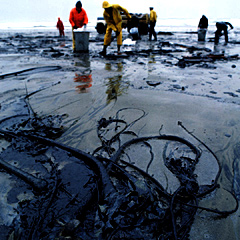 |
Atmospheric Administration |
[5th August 2010]*linkurl:Opinion: Louisiana shuns science;http://www.the-scientist.com/news/display/57609/
[5th August 2010]*linkurl:Gulf scientists "on the sidelines";http://www.the-scientist.com/blog/display/57504/
[23rd June 2010]*linkurl:New NSF grants for oil spill;http://www.the-scientist.com/blog/display/57441/
[19th May 2010]




















